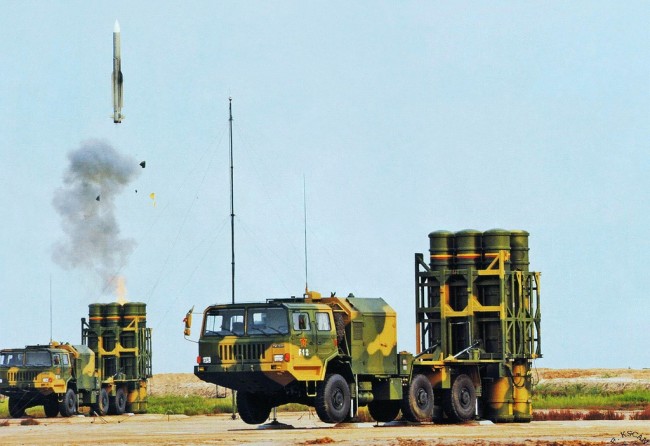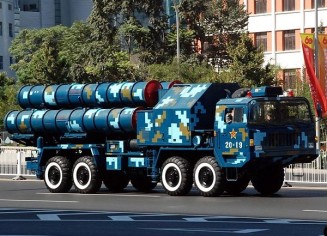Despite criticism from its NATO allies, Turkey would only give up co-producing an air and missile defense system with the ‘China Precision Machinery Import and Export Corp’ (CPMIEC), if the Chinese company drops the bid. Prime Minister Recep Tayyip Erdogan said on Thursday, as reported by the Turkish publication Today`s Zaman. CPMIEC was sanctioned by the United States in February for violations of the Iran, North Korea and Syria Nonproliferation Act.
Erdogan reiterated that Turkey will go ahead with purchasing the Chinese defense system as the firm is the only one that is willing to co-produce the defense system with Turkey and is also offering the cheapest price for the tender. According to Erdogan, the Chinese FD-2000 (an export version of the HQ9 system) was the least expensive of all proposals for the Turkish Long-Range Aerial and Missile Defense system (T-LORAMIDS); the combined French and Italian bids were one billion dollar higher than the Chinese for their SAMP/T Aster 30, the US Patriot required $1.2 billion more and the Russian S-400 required $4 billion more, but was also rated the best of all offers.
The Hurriyet newspaper added that Turkish Foreign Minister Ahmet Davutoğlu said Oct. 26 Turkey was open to new bids in its plan to acquire its first long-range anti-missile system, should negotiations with China come to nothing. “It is not a finalised deal yet. If the American and European companies make us better offers, we will continue to talk with them,” Davutoğlu, was quoted as saying. He also stressed that co-production was an unnegotiable condition for Ankara and only the Chinese firm had complied with it.
The Turkish selection has angered the US, saying the system would not be compatible with those of Turkey’s other allies. NATO Secretary-General Anders Fogh Rasmussen stated on Tuesday that arms purchases were national decisions but stressed the importance of interoperability between the systems nations plan to acquire and the systems of other NATO countries. “My answer to NATO is that nine of its members still hold Russian made missiles. They had to get those missiles out of their inventory. The Chinese system will be checked to see if it fits the NATO standards,” Erdogan said. The main challenge is the integration of the Chinese system with NATO’s ‘air situational picture’ command and control network shared among all the alliance countries. According to US industry sources, while the system could be operated side by side with NATO systems, full integration remains a challenge as NATO is not familiar with the Chinese system. Even if limited integration is met, ongoing support for such systems would not be possible. “Those in Turkey responsible for the development, production and fielding of those systems should be aware of this” the source said.
Turkey has asked the United States to extend the pricing on Raytheon Co’s Patriot missile defense system proposal, two sources familiar with the discussions told Reuters on Monday, a sign that Ankara is keeping its options open in case its talks with the preferred Chinese supplier fall through. “As the final decision has not been taken, the other firms on the list always have the possibility to improve their bids,” a senior Turkish official told Reuters.
China dismissed concerns about Turkey’s decision to co-produce a long-range air and missile defense system with the Chinese firm, (CPMIEC), saying that the US and others were needlessly politicizing a purely commercial deal. “The cooperation between the Chinese firm and Turkey is normal military cooperation between the two countries. We hope that all relevant parties can objectively and rationally view this cooperation, and should not politicize normal commercial competition,” said Chinese Foreign Ministry spokeswoman Hua Chunying. Chunying added that there was nothing to worry about, especially as China had very strict rules on arms exports to ensure no impact on regional or global peace and stability.


















